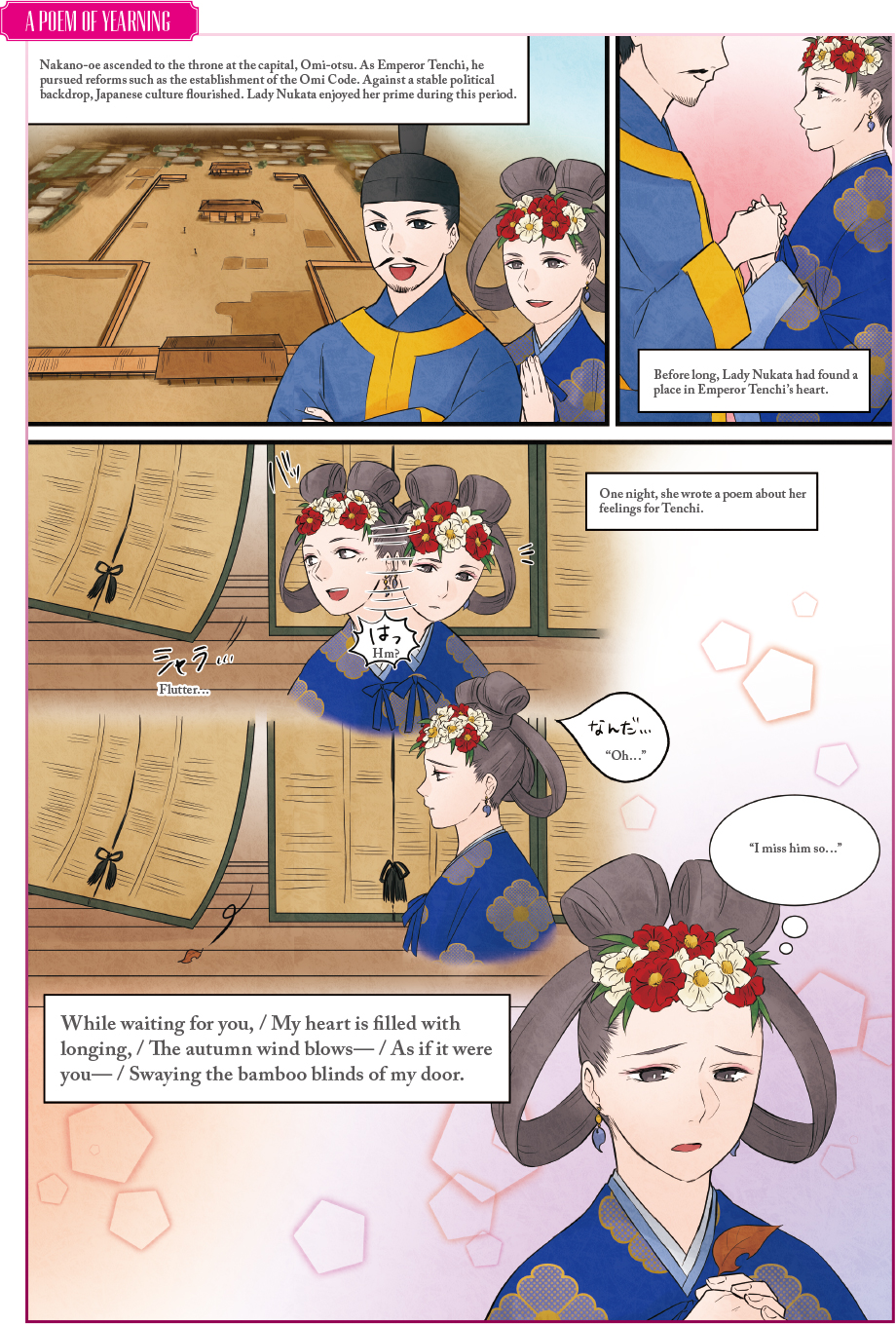As the emperor’s favorite, she writes a timeless poem about love
Omi-otsu—the once-flourishing capital swiftly disappears
In 668, Prince Nakano-oe took the throne as Emperor Tenchi. He carried out a series of policies that would leave their mark on future generations. These included a nation-wide family register system and the Omi Code, a set of laws for governing the nation—the first of their kind in Japanese history. Lady Nukata, always at the emperor’s side, continued to excel as a poet. Some of her poems reflected her deep knowledge of Chinese literature. Meanwhile, her daughter Princess Tochi married Prince Otomo and had a child. In both the public and private realms, Lady Nukata enjoyed a fulfilling life. But events took a turn for the worse in 671, when Emperor Tenchi died from a lengthy illness. The following year, the Jinshin War broke out. This conflict over imperial succession pitted Prince Otomo (Tenchi’s son) against Prince Oama (Tenchi’s brother). When Oama triumphed, he relocated the capital to Asuka Kiyomihara. Omi-otsu had been abandoned as the capital after just five years.
Poem Commentary:
While waiting for you, / My heart is filled with longing, / The autumn wind blows— / As if it were you— / Swaying the bamboo blinds of my door.* (Book 4, Poem 488)
The preface to this poem describes it as “A poem by Lady Nukata yearning for the emperor of Omi.” The emperor in question is Tenchi, and this poem was written as a somonka (love poem) intended for him. For lovers in ancient Japan, it was common practice for the man to visit the woman’s house, where she would be waiting patiently. Putting Nukata’s feelings in a modern context, it’s like she was waiting to see if he’d read her text message. The autumn breeze that caused the blinds to sway also stirred Nukata’s sensitive heart. Experts have noted the influence of an expression that appears in New Songs from the Jade Terrace, an anthology of Chinese poetry dating from the Northern and Southern dynasties period (5th–6th centuries). Nukata’s poem reveals how well read she was.
*Translation by Nippon Gakujutsu Shinkokai

